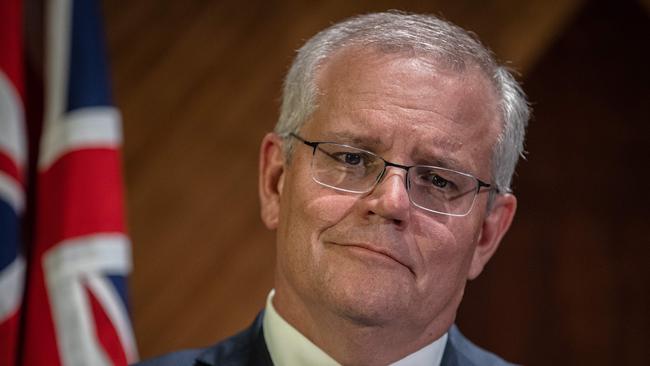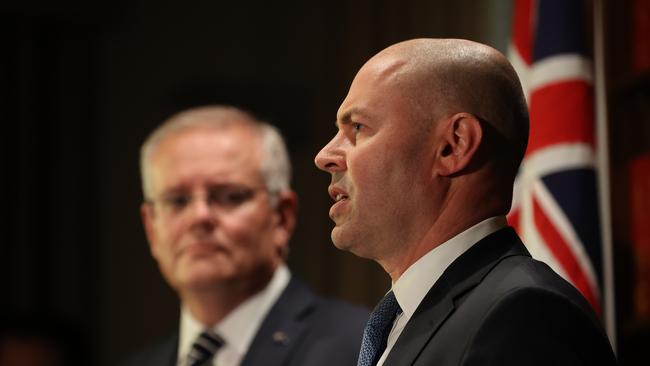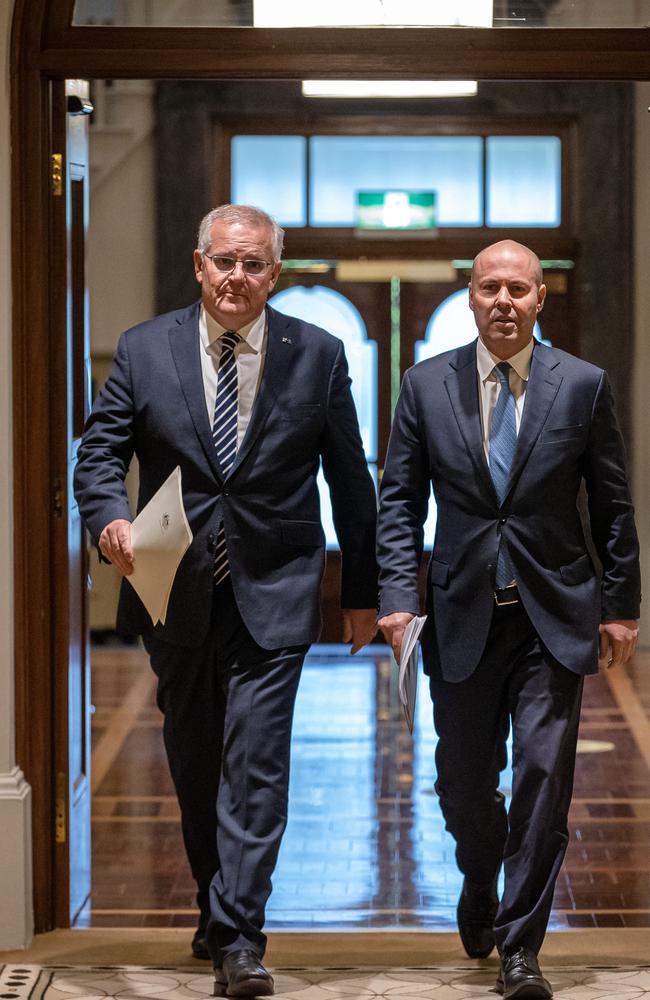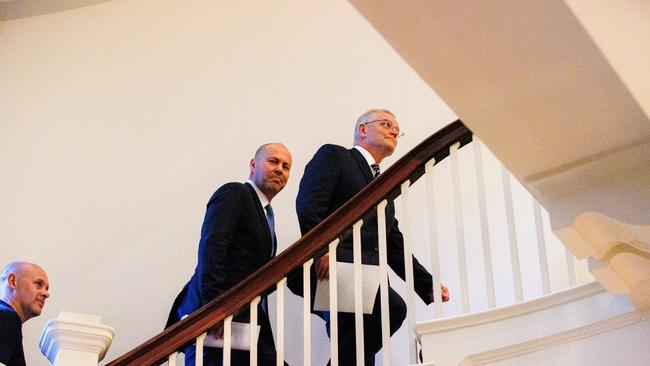Federal election 2022: How the interest rate hike will affect the PM
Scott Morrison says the shock hike in interest rates is not about him. But as Clare Armstrong explains, the ‘quiet Australians’ going to the polls may vote otherwise.
Federal Election
Don't miss out on the headlines from Federal Election. Followed categories will be added to My News.
As hundreds of thousands of Australian homeowners get a letter from their bank advising their mortgage has just gone up, the last thing the Coalition wants them to think about is Scott Morrison.
But distancing the Prime Minister and his government from the Reserve Bank of Australia’s decision on Tuesday to raise the cash rate to 0.35 per cent, while selling their message that the Coalition are better economic managers than Labor, will be easier said than done.
The last time the RBA raised rates during a federal election was in 2007, and everyone knows how that went for John Howard.
As Mr Morrison has been at pains to point out, the RBA’s decision this time was in a very different context.
It’s true the historic emergency low level was never expected to remain, but given the RBA was adamant as recently as late last year a hike was not on the cards until 2024, many Australians are unlikely to care for Mr Morrison’s nuance.
With their letter from the bank in one hand and a pencil poised over a ballot paper in the other, there will be a cohort of voters looking for someone to punish for the cost-of-living pain they’re enduring.

Even the most optimistic Coalition campaign operatives know for many of these voters, Mr Morrison may just fit that bill.
Critically, these frustrated and worried Australians will largely be the swing voting middle-income earners who sided with Mr Morrison in 2019.
As these so-called “quiet Australians” fret about the state of their household budgets, Mr Morrison is desperately trying to remind them of the “shield” he has provided in temporary cost-of-living measures and praising them for being “prepared” for an interest rise by switching to fixed rate mortgages or getting ahead on payments.

Cold comforts in six months’ time when rates have gone up several more times, the fuel excise cut is ended and the $250 given to pensioners and the $420 tax offset for low and middle income earners is well and truly spent.
Mr Morrison is also arguing the Coalition is still better placed to manage the economy in a future where more rate rises, inflation and other cost-of-living pressures are an absolute certainty.

But this message is undercut by the fact the Coalition’s budget, handed down barely a month ago, was based on now widely incorrect assumptions about inflation and the pace of rate rises.
The global factors Mr Morrison points to – like the war in Ukraine and supply chain issues caused by the pandemic – as the reason for increased pressures were all known by that time.
Labor will say Mr Morrison likes to take credit when external factors are making the economy go well, but when they’re doing opposite it’s not his fault.

Mr Morrison has already argued the cash rate is “not about me” and tried to suggest the issue not be seen through a “politics lens”.
But of course, it absolutely is about politics.
It was about politics on the multiple occasions Mr Morrison has argued rates would be lower under the Coalition compared to Labor, and it was about politics every time he brings up Anthony Albanese’s campaign day-one gaffe where he forgot the cash rate entirely.
Crucially, the next three weeks of “politics” will determine if voters direct their financial stress and frustration toward the Coalition, or opt to stick with the devil they know.
Got a story tip? Email us at federalelection@news.com.au
Know some goss or seen something in your electorate? Contact us at election.confidential@news.com.au
More Coverage
Originally published as Federal election 2022: How the interest rate hike will affect the PM





